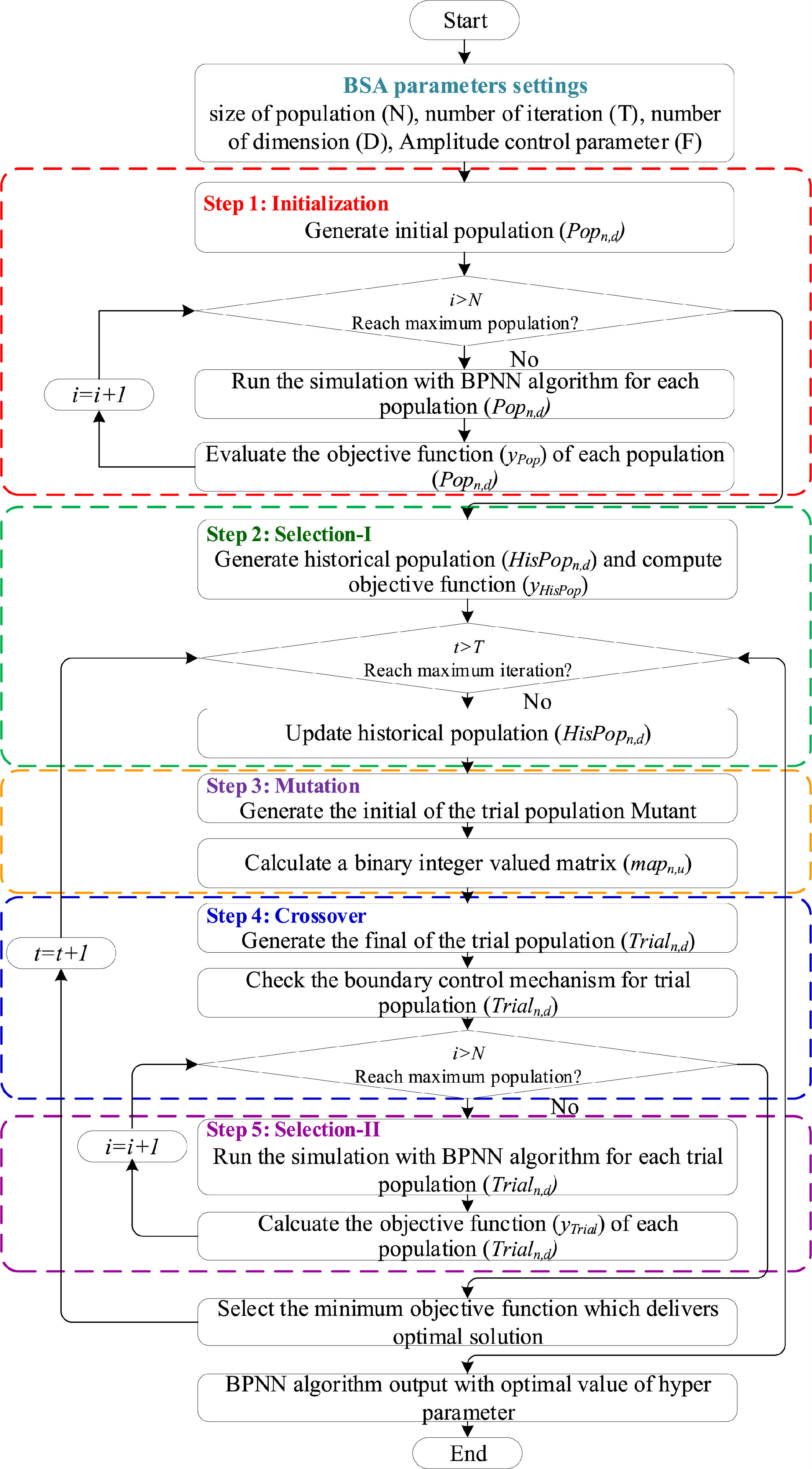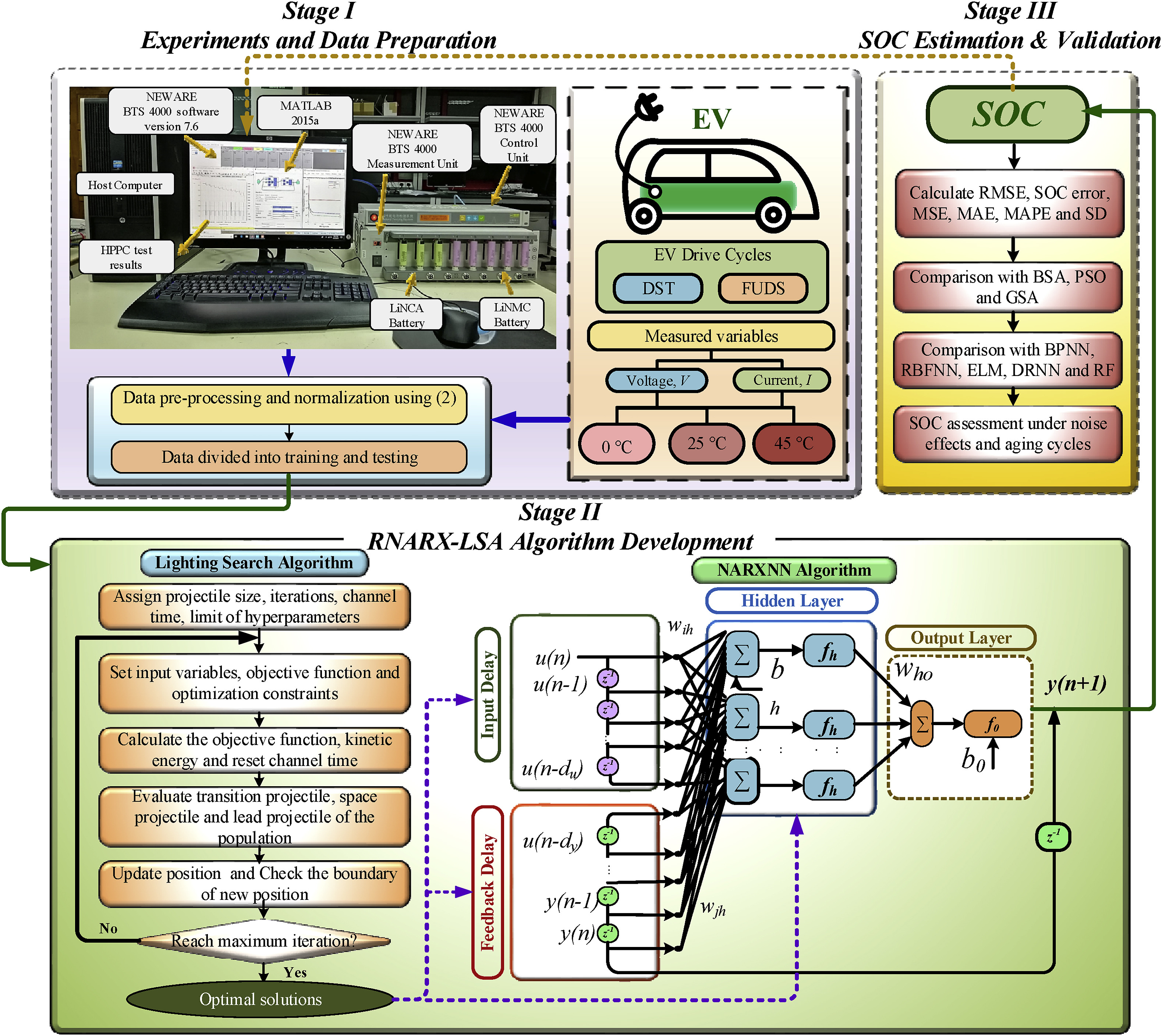|

| 摘要: Global carbon emissions caused by fossil fuels and diesel-based vehicles have urged the necessity to move toward the development of electric vehicles and related battery storage systems. Lithium-ion batteries are the ideal candidate for electric vehicle due to their superior performance with regard to high energy density and long lifespan. The state of charge of lithium-ion batteries is one of the crucial evaluation indicators of the battery management system that confirms the extended battery life, better charging-discharging profiles, and safe driving of electric vehicles. However, the accuracy of the state of charge is influenced by several issues such as battery aging cycles, noise effects, and temperature impacts. Therefore, this review presents a detailed classification of the recent data-driven state of charge estimation highlighting algorithm, input features, configuration, execution process, strength, weakness and estimation error. This review critically investigates the various key implementation factors of the data-driven algorithms in terms of data preprocessing, hyperparameter adjustment, activation function, evaluation criteria, computational cost and robustness validation under uncertainties. In addition, the review explores the deficiencies of existing data-driven state of charge estimation algorithms to identify the gaps for future research. Finally, the review provides some effective future directions that would be beneficial to the automobile researchers and industrialists to design an accurate and robust state of charge estimation technique toward future sustainable electric vehicle applications. |
部分图片:
| | 
图1 BSA based BPNN algorithm for SOC estimation of lithium-ion battery. | 
图2 The structure, execution and validation process of SOC estimation using NARXNN-LSA algorithm. | 引文信息: M.S.Hossain Lipu,M.A. Hannan,Aini Hussain,Afida Ayob,Mohamad H.M. Saad,Tahia F. Karim,Dickson N.T. How. Data-driven state of charge estimation of lithium-ion batteries: Algorithms, implementation factors, limitations and future trends[J]. Journal of Cleaner Production,2020.(下载链接) | 其他相关论文: 1. Kristen A. Severson,Peter M. Attia,Norman Jin,Nicholas Perkins,Benben Jiang,Zi Yang,Michael H. Chen,Muratahan Aykol,Patrick K. Herring,Dimitrios Fraggedakis,Martin Z. Bazant,Stephen J. Harris,William C. Chueh,Richard D. Braatz. Data-driven prediction of battery cycle life before capacity degradation[J]. Nature Energy,2019,4(5).(下载链接)
2. Peter M. Attia,Aditya Grover,Norman Jin,Kristen A. Severson,Todor M. Markov,Yang-Hung Liao,Michael H. Chen,Bryan Cheong,Nicholas Perkins,Zi Yang,Patrick K. Herring,Muratahan Aykol,Stephen J. Harris,Richard D. Braatz,Stefano Ermon,William C. Chueh. Closed-loop optimization of fast-charging protocols for batteries with machine learning[J]. Nature: International weekly journal of science,2020,578(7795). (下载链接)
|
|